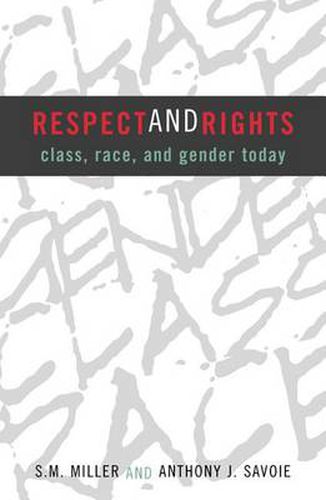Readings Newsletter
Become a Readings Member to make your shopping experience even easier.
Sign in or sign up for free!
You’re not far away from qualifying for FREE standard shipping within Australia
You’ve qualified for FREE standard shipping within Australia
The cart is loading…






Despite great improvements in recent years, group respect is increasingly the key issue of class, race-ethnicity and gender. It is a central promoter of today’s inequalities. Disrespect appears in modes of speech, prejudice and discrimination, inattention, everyday treatment, violence, social distance, and low regard for honesty or intelligence of those treated as others . An acute sense of respect deficit appears among women, African Americans, Hispanics, Asian Americans, Native Americans, immigrants, gays and lesbians, Muslims, people with disabilities, and those of low income or poor education. The causes - tradition, institutional practices, economic and psychological gain - and the economic, political, social and psychological costs of group respect deficits are analyzed in public opinion and other data as well as from many other sources. In a national analysis of the long-neglected issue of group self-respect, surprising changes in the self attitudes of African Americans are reported. Respect affects rights for low group respect impedes the enforcement and pursuit of rights. Authentic inclusion requires transformation of institutions, a more daunting task than overcoming prejudice. Action policies are proposed that seek to bring class, race and gender groups into more effective alliances.
$9.00 standard shipping within Australia
FREE standard shipping within Australia for orders over $100.00
Express & International shipping calculated at checkout
Despite great improvements in recent years, group respect is increasingly the key issue of class, race-ethnicity and gender. It is a central promoter of today’s inequalities. Disrespect appears in modes of speech, prejudice and discrimination, inattention, everyday treatment, violence, social distance, and low regard for honesty or intelligence of those treated as others . An acute sense of respect deficit appears among women, African Americans, Hispanics, Asian Americans, Native Americans, immigrants, gays and lesbians, Muslims, people with disabilities, and those of low income or poor education. The causes - tradition, institutional practices, economic and psychological gain - and the economic, political, social and psychological costs of group respect deficits are analyzed in public opinion and other data as well as from many other sources. In a national analysis of the long-neglected issue of group self-respect, surprising changes in the self attitudes of African Americans are reported. Respect affects rights for low group respect impedes the enforcement and pursuit of rights. Authentic inclusion requires transformation of institutions, a more daunting task than overcoming prejudice. Action policies are proposed that seek to bring class, race and gender groups into more effective alliances.